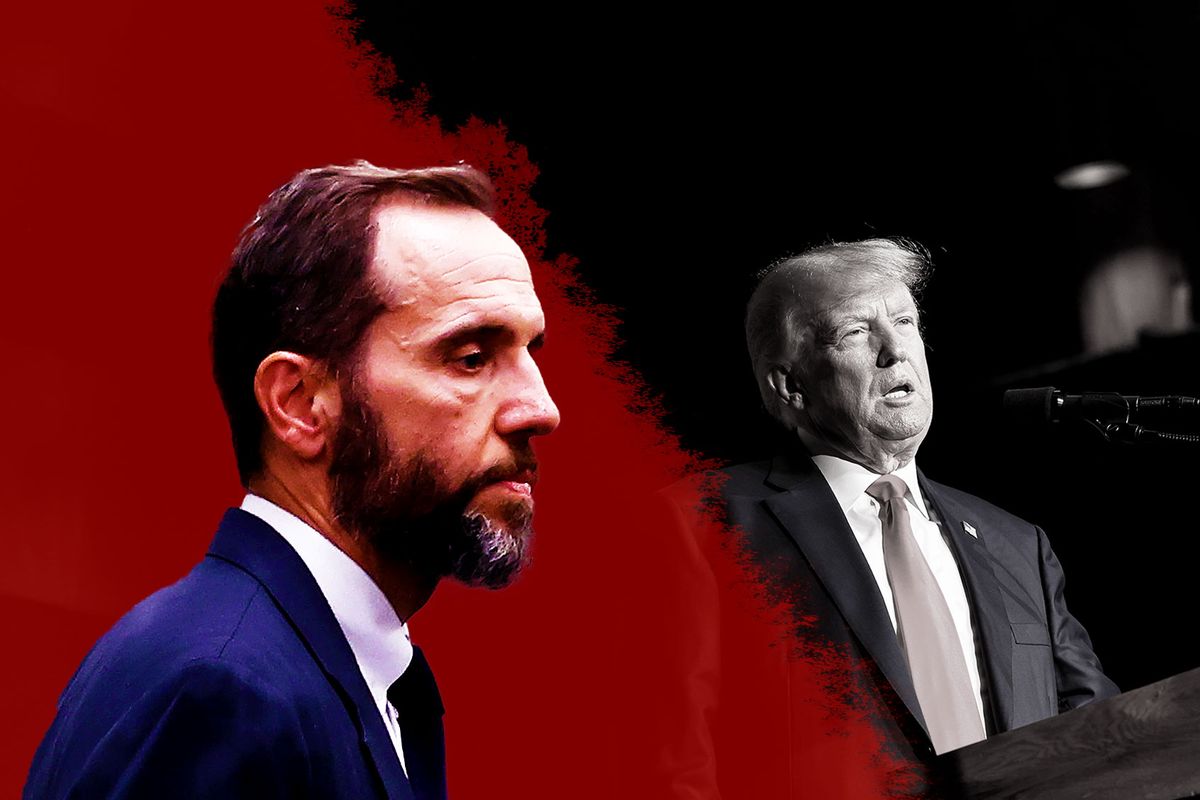“Opportunity for mischief”: Experts alarmed at Judge Cannon’s stealth delay and potential “graymail”

The Trump-appointed federal judge overseeing his Florida documents case set up a likely delay of the trial this month and legal experts worry about the potential for more “mischief.”
U.S. District Judge Aileen Cannon scheduled the former president’s trial date for next May but “in reality, she has run the pretrial process at a leisurely pace that will make a postponement almost inevitable,” Politico reported on Wednesday.
Delaying the trial until after the November election could allow Trump to shut the case down if he wins but even a shorter delay could push the trial into the heart of the general election campaign and potentially run up against the Republican National Convention next summer.
Cannon last week postponed several pretrial deadlines that likely make the May trial date unworkable.
“It could be seen as a stealth attempt to delay the ultimate trial date without actually announcing that yet,” former CIA attorney Brian Greer told Politico, adding that there is “pretty much no chance they could go to trial on May 20 with the current schedule.”
Much of the classified evidence in the case is governed by the Classified Information Procedures Act (CIPA) and this is believed to be Cannon’s first CIPA case, setting up additional concerns.
Prosecutors are likely to ask Cannon to allow special procedures at the trial, potentially proposing the “silent witness rule” to try to admit evidence without it being shown or read out in court, according to Politico. Under the rule, witnesses can sometimes testify on classified issues in disguise or while they are obscured by a divider, according to the report.
Trump’s team and the media will likely try to litigate against such measures, which could put special counsel Jack Smith’s team to a choice between making the secrets public and abandoning part of the prosecution, experts told the outlet.
“There are valid reasons [to object] from a press perspective and a defense perspective, but it also does provide an opportunity for mischief by the defense as part of the graymail problem that CIPA is supposed to thwart,” former DOJ national security prosecutor David Aaron told Politico. “CIPA will thwart the graymail problem, but that does sometimes take time.”
Scheduling issues are also likely to push back the trial. Cannon has already suspended the deadlines for motions related to classified information. She took more than five weeks to hold a hearing on Trump’s request for a new schedule and nine more days to issue a new one after the hearing. Her order put off the deadlines by nearly 16 weeks.
“She’s certainly taken her time to litigate things,” Greer told Politico.
“The signals are of a court that is proceeding slowly and methodically through the process,” added Brandon Van Grack, a former national security prosecutor who served on special counsel Bob Mueller’s team. “In order to have a trial by May, the court would just need to push the parties on a tighter deadline.”
But Cannon has pushed back on prosecutors’ attempts to speed up the schedule.
“I’m just having a hard time seeing how realistically this work can be accomplished in this compressed period of time, given the realities that we’re facing,” Cannon told Smith’s team at a hearing earlier this month.
The trial is expected to last weeks and could overlap with the Republican National Convention in Milwaukee, which is scheduled for July 15, if it is delayed.
“Could she try to squeeze it in before that? Maybe, but I doubt she’d do that,” Greer said.
Delaying it until August or later would mean that Trump is already likely the Republican presidential nominee. But pushing the trial until after the election could potentially give Trump a chance to win and appoint an attorney general willing to drop the case or even pardon himself.
Want a daily wrap-up of all the news and commentary Salon has to offer? Subscribe to our morning newsletter, Crash Course.
“The Department of Justice is trying to do everything in its power ahead of trial to move as expeditiously as possible,” Van Grack said. “And the court is just reluctant to or resistant to any efforts to expedite the process.”
Keeping the May 2024 schedule in place while making it unlikely that the trial would actually proceed by then also complicates matters for judges overseeing Trump’s other cases in D.C., Atlanta and New York City.
“The tricky thing is, it puts them in limbo. Another judge could schedule something for May but may not want to, because it’s possible trial will still go in May,” Greer told The Daily Beast. “If you’re a cynic—and I’m not—you might say she deliberately did this”
Read more
about Judge Aileen Cannon

